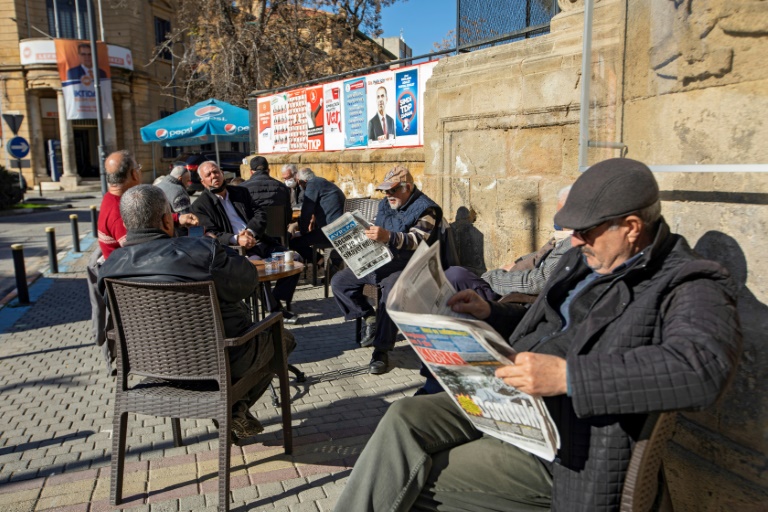A right-wing nationalist party has won the majority of Turkish Cypriot votes in snap legislative elections in the breakaway northern region of Cyprus, according to provisional official results released Monday.
The self-proclaimed Turkish Republic of Northern Cyprus (TRNC) — recognised only by Ankara — has been hit hard by the Covid-19 pandemic and the plummeting value of the Turkish lira.
The National Unity Party (UBP) of right-wing nationalist Ersin Tatar, a close ally of Turkish President Recep Tayyip Erdogan, won 39.5 percent of the vote, strengthening its presence in the TRNC parliament by taking 24 out of 50 seats.
As in 2018, the pro-Ankara UBP will have to form a coalition to govern.
The centre-left Republican Turkish Party (CTP) came second with 32 percent of the vote to take 18 seats, according to the Supreme Election Commission (YSK).
Final results are expected in the next few days with turnout estimated at 58.2 percent when polls closed.
Analysts noted apathy among the roughly 204,000 voters, whose main concerns centre on health, safety and economic welfare.
“Compared to the previous elections in northern Cyprus, there is much less energy and enthusiasm in the air,” political scientists Ahmet Sozen and Devrim Sahin wrote on the website of Italian think tank ISPI.
Cyprus has been split since 1974 when Turkish forces occupied the northern part of the island in response to a military coup sponsored by the junta in power in Greece at the time.
The UBP favours a two-state solution while the CTP urges a settlement with the Greek Cypriots.
The small United Cyprus Party (BKP), which favours a federal solution, had called for a boycott of the vote, stating that “nothing will change” until Turkish Cypriots are “liberated from the yoke of Ankara”.
But unlike previous TRNC elections, campaigning this time focused on the territory’s economic woes rather than any talk of a solution to the problem.
– Setback –
Hopes of resolving the intractable dispute suffered a setback when Tatar pulled off a surprise, narrow win over pro-unification candidate Mustafa Akinci in the TRNC’s 2020 presidential election.
Tatar has pressed for recognition and insisted on a two-state solution at UN-brokered talks on ending the division.
His stance was flatly rejected by the majority Greek-speaking Republic of Cyprus, a European Union member with effective control over the southern two-thirds of the island.
The Erdogan administration was accused of interference in the TRNC’s 2020 presidential election, sparking resentment among many Turkish Cypriots.
This time, however, “there is no need for Turkey’s government to play an active role to change the course of the election”, Sozen and Sahin wrote.
Instead, it is Erdogan’s handling of the Turkish economy, on which the TRNC heavily relies, that has emerged as the primary issue in the poll.
“People are depressed because the cost of living is too high,” said Dervis Dizliklioglu, 72, a retiree.
“I hope that those who are elected will work effectively for the good of the people.”
The Turkish lira shed 44 percent of its value against the dollar last year, driving up prices by a similar amount and exacerbating decades of economic isolation imposed on the north.
Negotiations to resolve the Cyprus problem have been suspended since 2017.
Attempts by the United Nations, which controls the buffer zone separating the Turkish-speaking north and Greek-speaking south, to revive negotiations in April 2021 ended in failure.
In 2004, Greek Cypriots rejected a UN plan for the creation of a loose federation on the island.
The majority of Turkish Cypriots voted in favour of the scheme.











